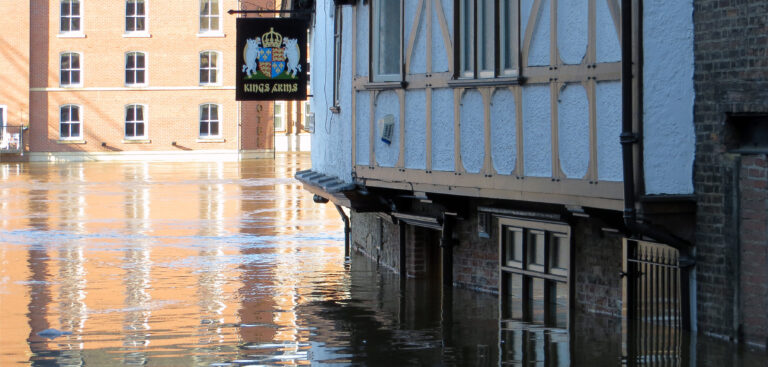The UK’s climate science organizations will begin working together to develop a new national alliance focused on climate solutions.
Seven centers supported by the Natural Environment Research Council (NERC) and the Met Office will work together as the new UK National Climate Science Partnership (UKNCSP).
Prof. Paul Monks, chief scientific adviser for the government’s Department for Business, Energy and Industrial Strategy (BEIS) introduced the partnership at the Met Office’s future of climate modeling session on Wednesday, November 3 at the United Nations Climate Change Conference, COP26.
The UKNCSP aims to align and integrate modeling and sustained observing programs for the evolving global and UK climate alongside the wider UK science community. Therefore, it will combine its science research capabilities with those of universities across the country to integrate the UK’s capabilities for monitoring and predicting climate change and its impacts. To extend observational and modeling approaches in the UK, the alliance will also develop the use of new technologies, establish major programs of trans-disciplinary research and provide training for a new generation of policy and decision makers. The seven NERC-supported research centers are British Antarctic Survey, British Geological Survey, the National Centre for Atmospheric Science, the National Centre for Earth Observation, the National Oceanography Centre, Plymouth Marine Laboratory and the UK Centre for Ecology and Hydrology.
The partnership will also work with the public and private sectors to ensure decision makers and businesses have access to the climate information they need, to build resilience and adapt to the pressing challenges of the coming decades. The coordinated national approach will support BEIS in enabling businesses to face the challenges and opportunities of climate change. As businesses become increasingly aware of the need to take the challenges and opportunities of climate change seriously, quantitative information about the potential impacts of climate change on their assets and operations, and the associated risks, is required. The UKNCSP will deliver climate information needed to help businesses make positive steps toward addressing these issues.
Prof. Angela Hatton, director of science and technology at the National Oceanography Centre, said, “We need to continue to develop our capabilities to address new challenges, provide early warning of potential high-impact changes that may emerge and evaluate specific policy options to mitigate and adapt to climate change.”
Prof. Alan Jenkins, deputy director of the UK Centre for Ecology and Hydrology (UKCEH), added, “This partnership encompasses the entirety of climate science – identifying the causes and impacts of climate change, and making predictions for the coming decades.”
Prof. Albert Klein Tank, director of the Met Office Hadley Centre for Climate Science and Services, said, “Climate science needs to evolve to deliver to the new solutions agenda and this requires collaboration with experts in related science areas, as well as with practitioners in policy, planning and business. There is an urgent need for a sustained, coordinated vision and investment in long-term observations and numerical models to answer how the climate is changing and why, what might happen next, what impacts may arise, and which solutions will be most effective.”
Prof. Rowan Sutton, director of Climate Science at the National Centre for Atmospheric Science, concluded, “At a time of rapid climate and technological change, the UKNCSP will enable a new solutions-focused approach by bringing together the UK’s major climate science organizations to deliver the climate information needed for climate solutions. By pooling the power of the UK’s wide-ranging capabilities in climate observing and prediction, we can shape a world-leading, strategic partnership that is driven by policy and decision-making needs.”



